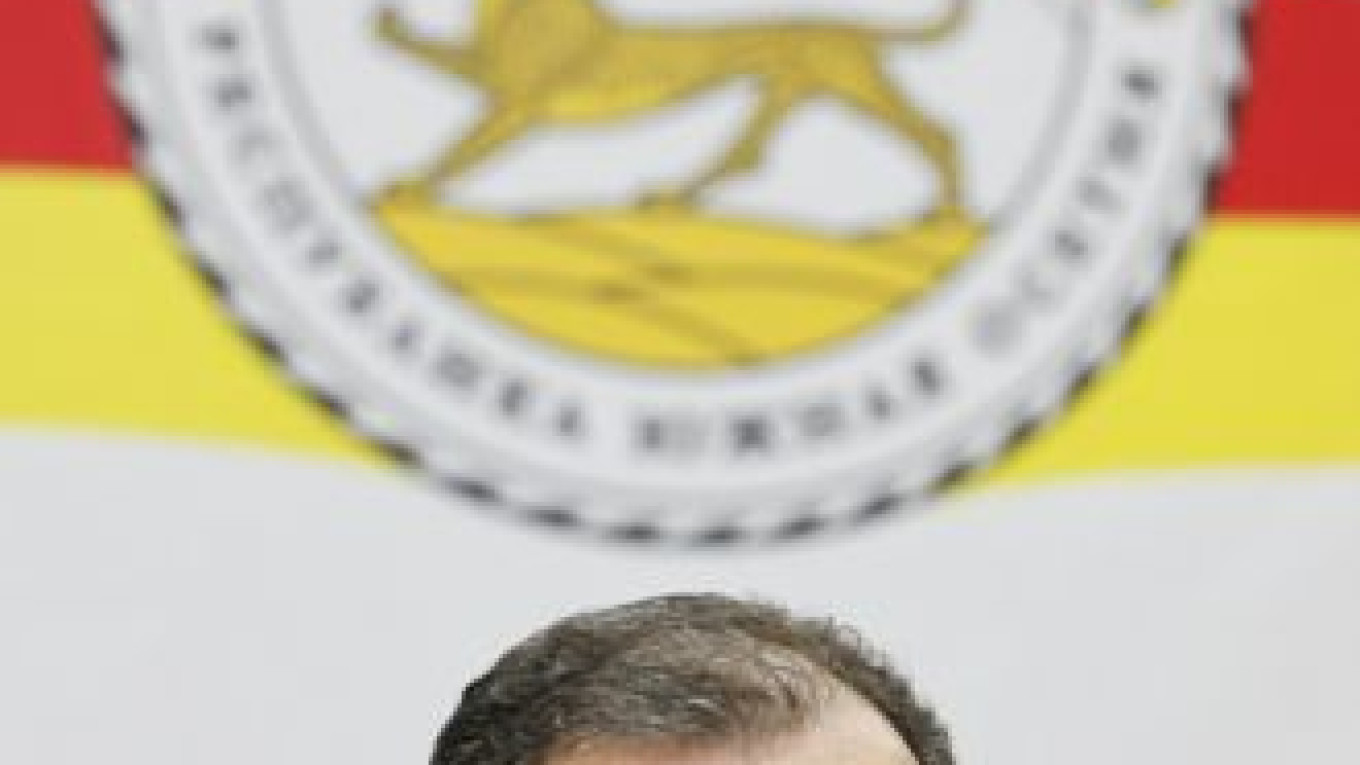The situation in South Ossetia was tense Monday after authorities declared opposition candidate Alla Dzhioyeva the winner in a presidential runoff, a result that her Kremlin-supported opponent Anatoly Bibilov loudly disputed.
Dzhioyeva won 56.7 percent of Sunday's vote, while Bibilov took just 40 percent, according to preliminary results based on 74 of the 85 electoral districts published on the breakaway Georgian region's official news .
If confirmed, Dzhioyeva, a former education minister, would become the first female president in the patriarchal Caucasus.
But Bibilov's supporters insisted early Monday morning that he had won the election. Bibilov later reporters that the vote was illegitimate because of "numerous violations" by Dzhioyeva's team, including attempts to intimidate elections commission members.
He said he had filed an official complaint to the South Ossetian supreme court.
The court postponed a hearing over the complaint until Tuesday because it said it needed more information, Interfax reported.
Earlier, court chairman Atsamaz Bichenov imposed a ban on publishing electoral results, arguing that publications could not go forward before Bibilov's complaint has been heard.
The South Ossetian central elections commission, however, ignored the order and published preliminary results shortly after the ban was announced Monday morning. Commission chairwoman Bella Pliyeva explained that she had not been officially informed and heard the court's decision only through other media, Interfax reported.
Dzhioyeva, meanwhile, rejected accusations of intimidation and called on the population to remain calm.
"To claim that there were any systematic violations is simply unfit," she , adding that the blame for any unrest would lie at Bibilov's feet. "The responsibility for any destabilization lies fully with our opponents."
Bibilov himself has in the past warned of a civil war, arguing that many in South Ossetia were prepared for armed resistance if Dzhioyeva comes to power.
Experts warned that the risk was considerable since the region was politically split in roughly equal halves.
"In such a small society that is widely armed, the danger of violence is real," said Alexander Krylov, an analyst with the Academy of Science's International Relations Institute.
The presidential race in the tiny mountainous region with a population of hardly 30,000 inhabitants has been marred from the beginning by accusations of foul play.
In the first round of the election held on Nov. 13, Bibilov and Dzhioyeva both finished with 24 percent of the votes.
Bibilov, the local emergency situations minister, was publicly backed by President Dmitry Medvedev during a meeting in Vladikavkaz last week.
Dzhioyeva's main backers are Anatoly Barankevich, a former defense minister, and Dzhambolat Tedeyev, Russia's national wrestling team trainer, who was barred from standing in the election himself because he has not continuously lived in South Ossetia.
Outgoing president Eduard Kokoity, who is barred by the constitution from serving a third term, had backed other candidates who did not fare well in the first round.
South Ossetia declared independence from Georgia after a short war in the early 1990s. In 2008, Russian troops crushed an attempt by Georgia to retake the province, leading to Moscow's subsequent recognition of its independence — a move that has been followed by only four countries so far.
The Georgian government denounced the elections Monday.
"What is happening there is not an election but an event planned by the Kremlin," Deputy Foreign Minister Nino Kalandadze said, according to the web site civil.ge.
A Message from The Moscow Times:
Dear readers,
We are facing unprecedented challenges. Russia's Prosecutor General's Office has designated The Moscow Times as an "undesirable" organization, criminalizing our work and putting our staff at risk of prosecution. This follows our earlier unjust labeling as a "foreign agent."
These actions are direct attempts to silence independent journalism in Russia. The authorities claim our work "discredits the decisions of the Russian leadership." We see things differently: we strive to provide accurate, unbiased reporting on Russia.
We, the journalists of The Moscow Times, refuse to be silenced. But to continue our work, we need your help.
Your support, no matter how small, makes a world of difference. If you can, please support us monthly starting from just $2. It's quick to set up, and every contribution makes a significant impact.
By supporting The Moscow Times, you're defending open, independent journalism in the face of repression. Thank you for standing with us.
Remind me later.


